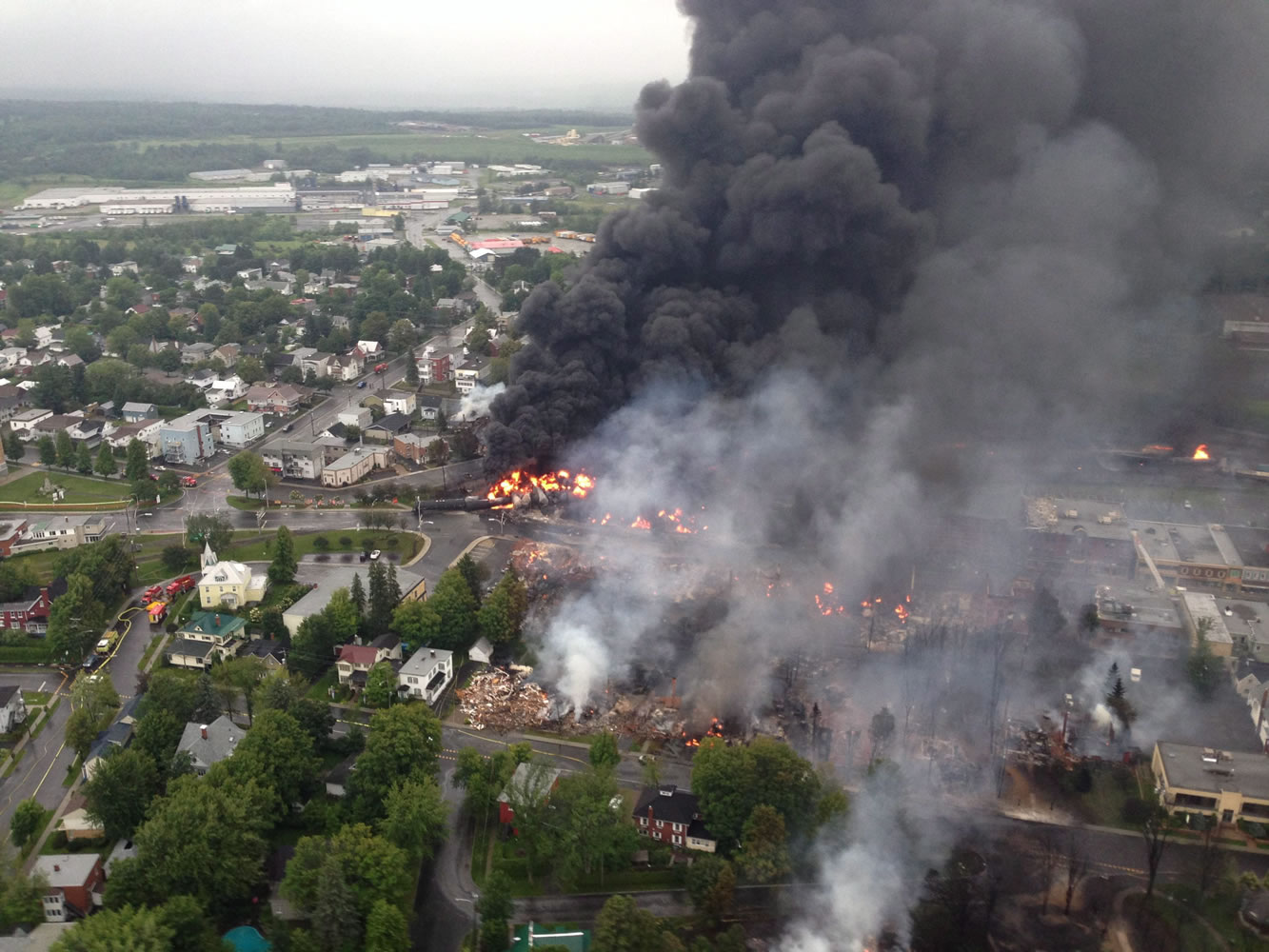WASHINGTON— The Department of Transportation on Tuesday banned about 3 percent of a fleet of railroad tank cars from carrying flammable crude oil, according to the rail industry’s leading advocacy group, leaving tens of thousands more vulnerable cars in service.
Tuesday’s emergency order, issued on the eve of a hearing in Congress today on rail safety, also requires that crude oil from North Dakota’s Bakken region be tested and properly labeled. Regulators have concluded that Bakken crude is more flammable, and that step could help first responders better know the dangers they face in an emergency.
“Today we are raising the bar for shipping crude oil on behalf of the families and communities along rail lines nationwide,” Transportation Secretary Anthony Foxx said in a statement. “If you intend to move crude oil by rail, then you must test and classify the material appropriately.”
Congress, state and local officials — even the railroad industry itself — have been calling for even tougher standards for tank car safety. According to the Associa
tion of American Railroads, the 3 percent of tank cars affected by the new safety rules would only represent about 1,100 cars.
On Tuesday, McClatchy reported that the railroad industry group had requested new regulations on tank cars in March 2011, but the Department of Transportation only began the process of writing those new rules after a derailment last summer killed 47 people in Quebec. It could be a year before the Pipeline and Hazardous Materials Safety Administration finalizes them.
Railroads want regulatory certainty, but they aren’t waiting for it. Last week, the nation’s leading hauler of crude oil in trains, BNSF Railway, said it would buy 5,000 new, better reinforced tank cars. Canada’s two largest railroads have said they would charge oil producers more to ship their cargo in older, more vulnerable cars.
The National Transportation Safety Board had been warning about the weakness of the DOT-111A general service type tank car, which carries crude, for at least two decades. Those problems became apparent in several fiery derailments involving ethanol trains from 2006 to 2012. One accident, in 2009 in Illinois, resulted in injuries and one fatality.
The NTSB repeated its warning about the cars to the Transportation Department in 2012.
“The NTSB is often way ahead of the regulatory agencies,” said Rep. Peter DeFazio, D-Ore., a member of the House Transportation and Infrastructure Committee, which will hold the safety hearing.
On July 6, a trainload of Bakken crude oil rolled down a hill into Lac-Megantic, Quebec, and piled up in a deadly and destructive derailment. In addition to the mass casualties, the town’s center was reduced to a charred ruin.
Subsequent derailments with large fires and explosions in Alabama and North Dakota indicated that the Quebec accident may not have been simply a matter of human error. Two more recent close calls in Pennsylvania have prompted state and local leaders to demand a more immediate response from Washington.
Last week the Federal Railroad Administration announced steps to improve the safety of crude oil trains, including reduced speeds in urban areas, safer routing of hazardous materials and additional training for emergency responders. The steps are voluntary, and railroads have until July 1 to comply.
The measures didn’t go far enough for some lawmakers.
Sen. Charles Schumer, D-N.Y., proposed Tuesday that all DOT-111A cars be phased out from crude oil service in New York state by July 1.



